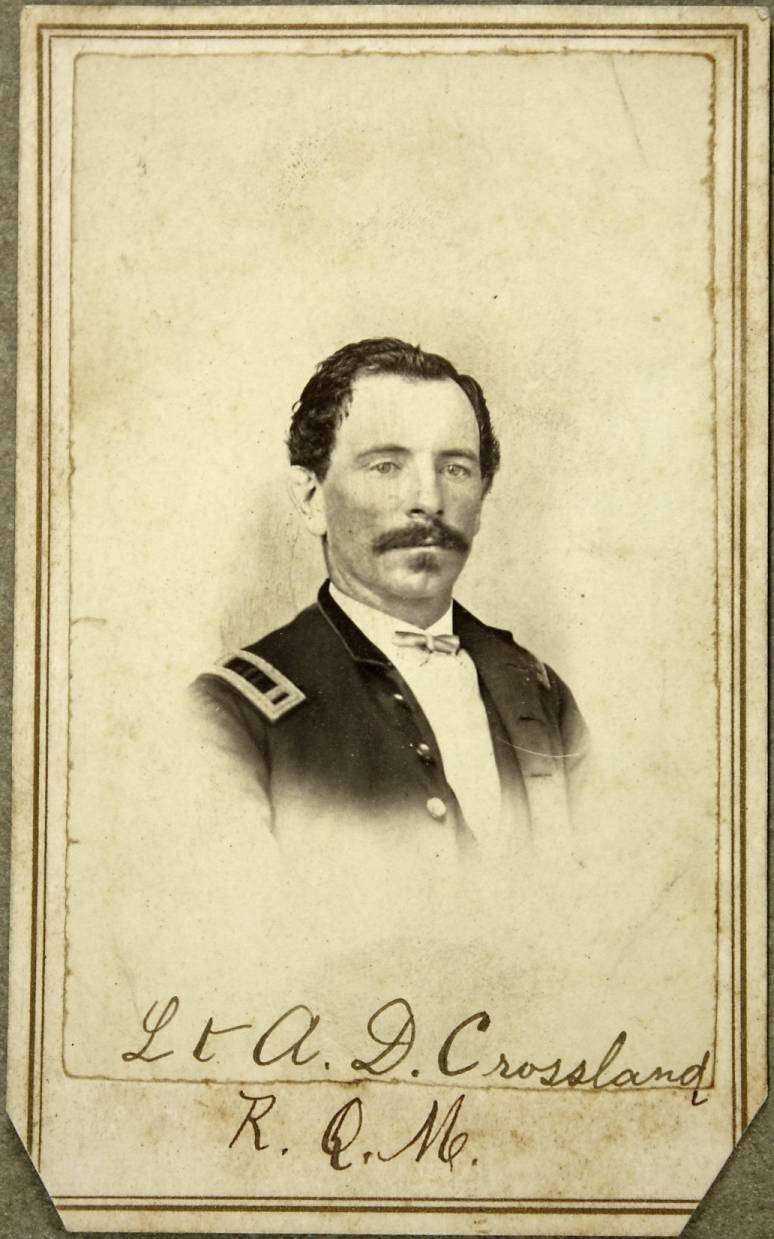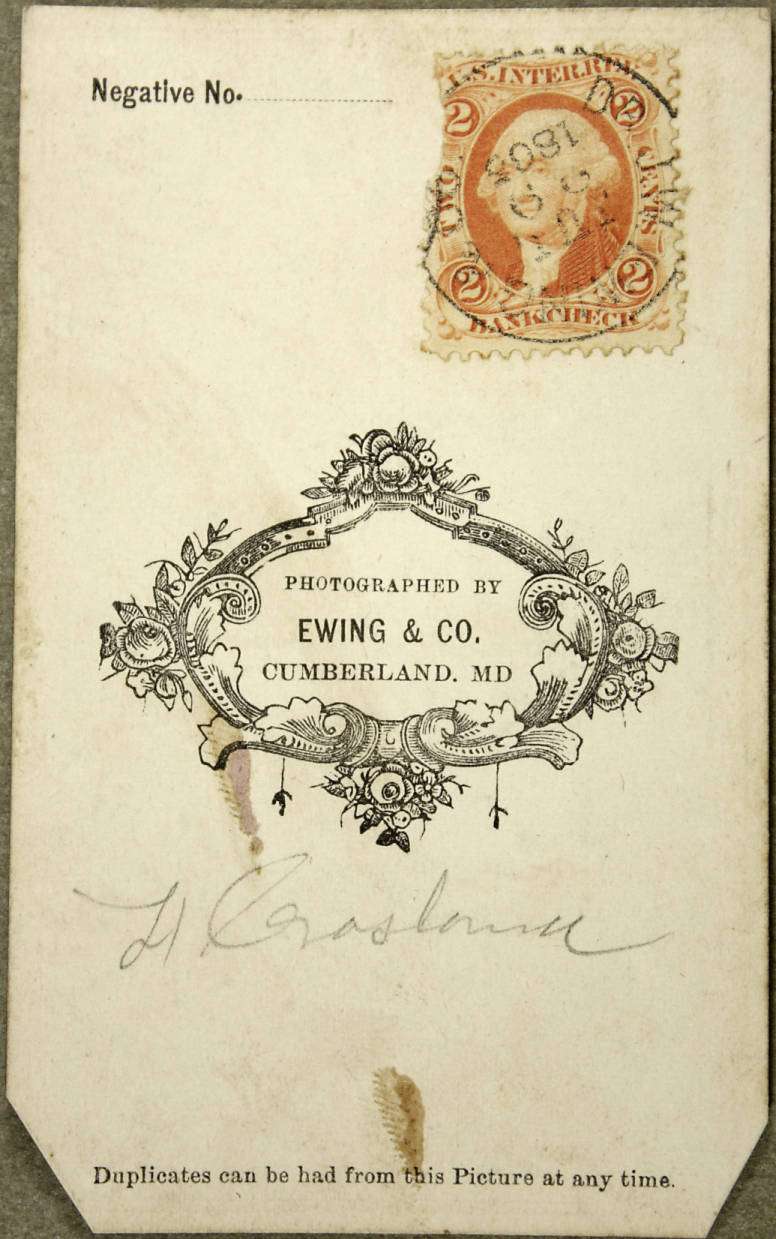Gen. Enochs and A.D. Crossland War Experiences
Narrow Escape #3
Ironton Register 2 Dec. 1886
Submitted by Peggy Wells
“I suppose you have observed that the Register is giving some “Narrow Escapes” of the boys in the war, Gen. Enochs?”
“Yes, indeed,” said the General, “I read them with a great deal of interest. They are a good thing. They remind me of what Gen. Hayes said to me at Portsmouth during the reunion. He remarked that the real history of the war has not yet been written; and will not be until the boys have a chance to tell their personal experiences.”
“Well now,” said the reporter, “that’s just what I am after – a “Narrow Escape” from you.”
“Oh, I have none worth relating. I was in a great many battles and met danger with the rest of the boys, but I have no distinctively romantic escape to relate. My narrowest escape was where I didn’t altogether escape. It was at the battle near Winchester, on the 19th of September 1864, Sheridan’s first great battle in the Shenandoah Valley.
“You remember the engagement began at about noon. The 19th corps was on the left, the 6th corps in the center, and the Army of West Va. on the right, and my regiment, which I commanded that day, was on the extreme right of the whole line; that is, of the infantry line. Custer’s and Merritt’s divisions of cavalry still covered our flanks.
“Well, we had driven the rebel forces gradually from the start; and they were very hard to drive as they fought behind the stone fences which abound in that country. It was on toward five o’clock in the evening, and the rebel lines had been driven back from every point except where the artillery was planted, which was a strong position.
“Their cannon was doing fearful execution, and the musketry from that quarter was very severe. Gen. Duval, who commanded our brigade, had fallen, and the ranks were much shattered. I had lost my horse in a swamp soon after the fight commenced, and so was afoot in the battle. Things were in turmoil and confusion; nobody seemed to be directing our brigade or division, so I took hold of our end of the line myself and ordered an assault on the rebel artillery.
“I thought we wouldn’t be killed any faster going ahead than standing still. Then the enemy opened on us furiously. Our line, as it advanced, had a very ragged edge to it. It was made up almost without any order as to regiment, a dozen regiments being represented in some parts of the line.
“As we approached the rebel position, I happened, at one moment, to be looking down the line, awfully anxious about its maintaining itself, when my “narrow escape” came to me in the form of a Minnie ball, and down I went, to figure, as the comrades around me supposed, among the list of the killed.
“And I would have thought so too, possibly, if I had not been knocked senseless. There I lay insensible for some time but finally regained my thoughts to find that I couldn’t see. I was blind as a bat for over an hour, but during that little period, I felt about to ascertain the extent of my wound and found a ball sticking in the side of my head about two inches above the right ear. It had gone through my hat band and flattened against the skull, which it bruised badly, and to which it stuck until I pulled it off. The first man who discovered I wasn’t dead was Lewis Neff, of Rome township, who gave me a drink from his canteen.
“That was true, a very close shave,” said the reporter, “but what of the charge on the artillery?”
“Oh, that was the best part about it,” said the General–“the boys went right on and captured the rebel works, and that did as much as any other one thing that day to give us the victory. The next day, I was all right and took command of my regiment again.”
“Where’s the ball?” asked the reporter.
“I carried it for a couple of years after but finally lost it,” replied the General, “but I can recollect everything about that fight without the ball as a reminder. It struck me too forcibly to ever be forgotten.”
We have room for another “Narrow Escape,” not a very big one, but a laughable little one. Lieut. A. D. Crossland of the old 91st tells it. Everybody knows A. D., as brave a fellow and as jolly as ever, went into the army. He said to us on Thanksgiving day:
“I see you are giving the “Narrow Escapes” of the boys in the army – I want to tell you mine – it’s a short one. It took place at the battle of Cloyd Mountain — a mighty hot little fight. You see, I was Quartermaster and didn’t have to fight except in my own way, but I generally saw the boys through. So at that fight, I got a musket and run a corps of my own.
“I cornered a big reb behind a small tree. I had the advantage because I had a first aim, and as I saw a part of him, I tried to shoot, but the trigger on the old musket wouldn’t work, and while I was fussing at it to get it to go off, the reb. peeped around and surmised the difficulty, and as I was behind a very small tree that didn’t altogether conceal me, reb concluded his chance had come, so he raised up, took aim, and tired.
“Good gracious, how I was scared! but he missed me, and immediately I thought the thing to do was to get away from there, so I jumped from behind the tree and struck northward like greased lightning to get with the boys. As soon as I started to run, I looked back to see if Johnny Reb was coming after me, but how happy I was when I saw him climbing in the opposite direction as fast as his legs could carry him. As soon as he shot, he dropped his gun and lit out, just as I had done. He was going so fast. I expected he was running yet.
“Now you can talk of your “Narrow Escapes,” but I’m thinking that’s a pretty narrow one for a Quakermaster to get out of, don’t you?”
“We do, truly.”
Photo of Lieut. A. D. Crossland, R.Q.M., Creator Ewing & Co. (Cumberland, Md.) Publisher Courtesy of Marietta College. Special Collections
Allen Dorsey Crossland was born 29 June 1835 in Connellsville, Fayette County, Pennsylvania. His father was Richard Crossland, a native of Elliott’s Mills, Anne Arundel County, Maryland, and his mother was Rebecca Strawbridge. He left Connellsville at the age of 18 and landed in Ironton, Ohio, and taught school at Cutright’s Mills, South Point, Lawrence Furnace, and Kelley’s Mills.
He married in 1857 at Powellsville to Miss Sarah Ellen Barnet and had the following children: Louella, who died at 19 years; Margaret wife of John. L. Davies; Edward E. at Hillsboro, Ohio; Anna L., wife of Nara White of Jackson, Ohio; Samuel C., Jackson, Ohio; Blanche, stenographer; John D., Hillsboro, Ohio; Jesse, at home. His first wife died on 31 March 1885, and he married the second time to Mrs. Rosa Sherwood, nee Reigel 18 Nov. 1888, and they had one child, Lillian.
Source: A History of Scioto County, Ohio



0 Comments